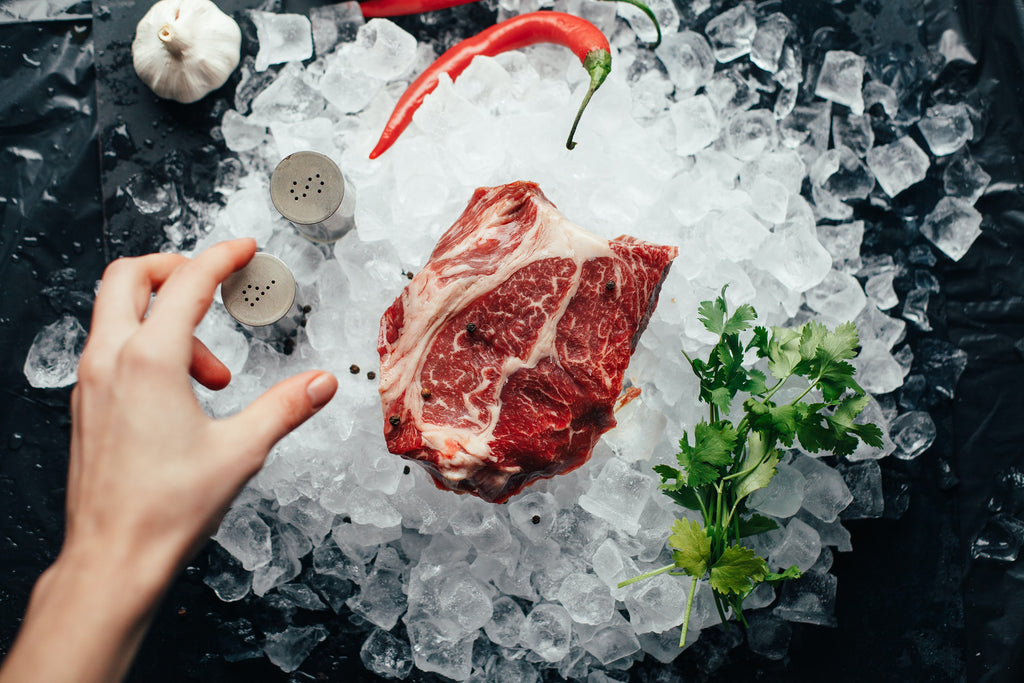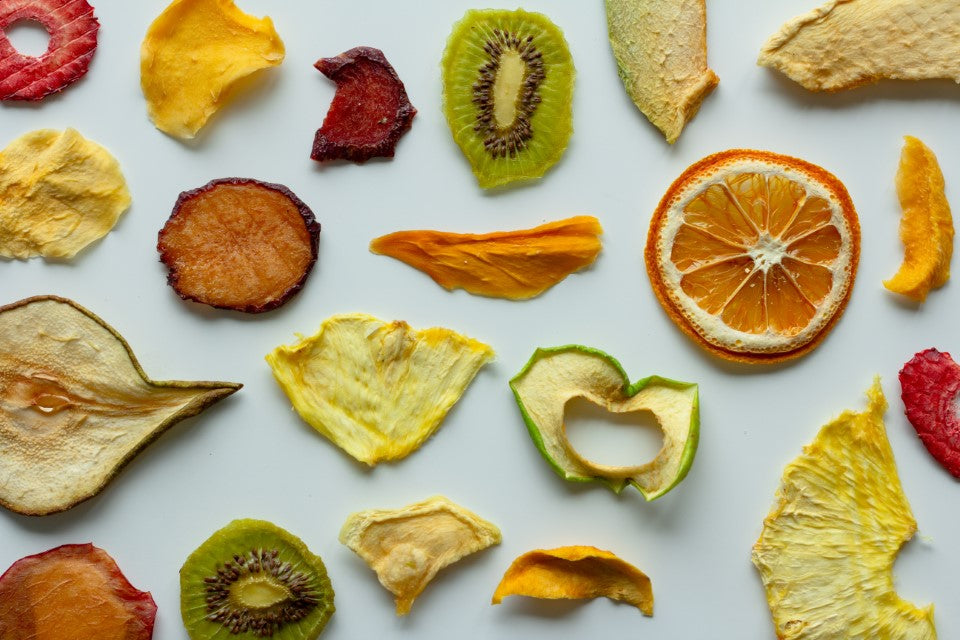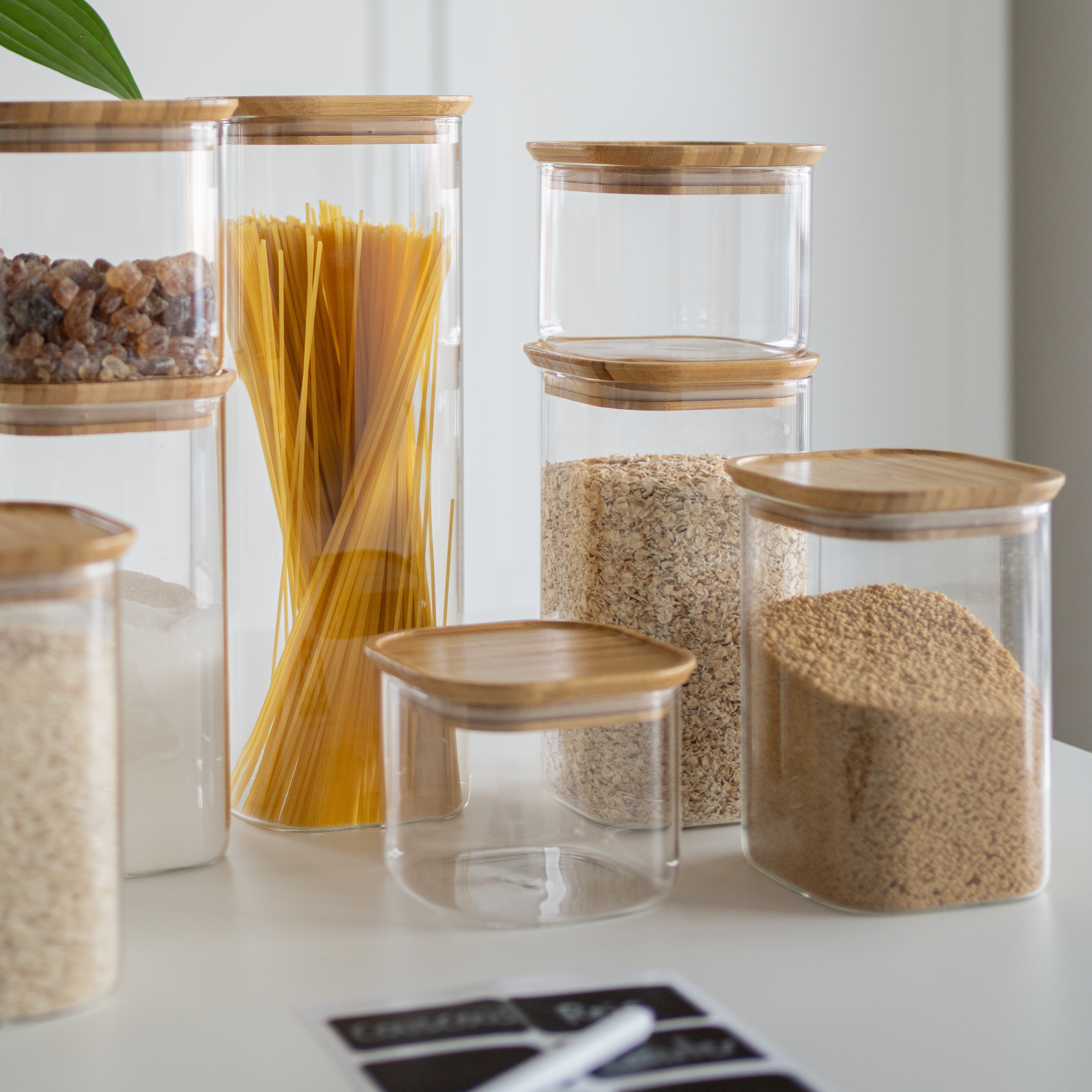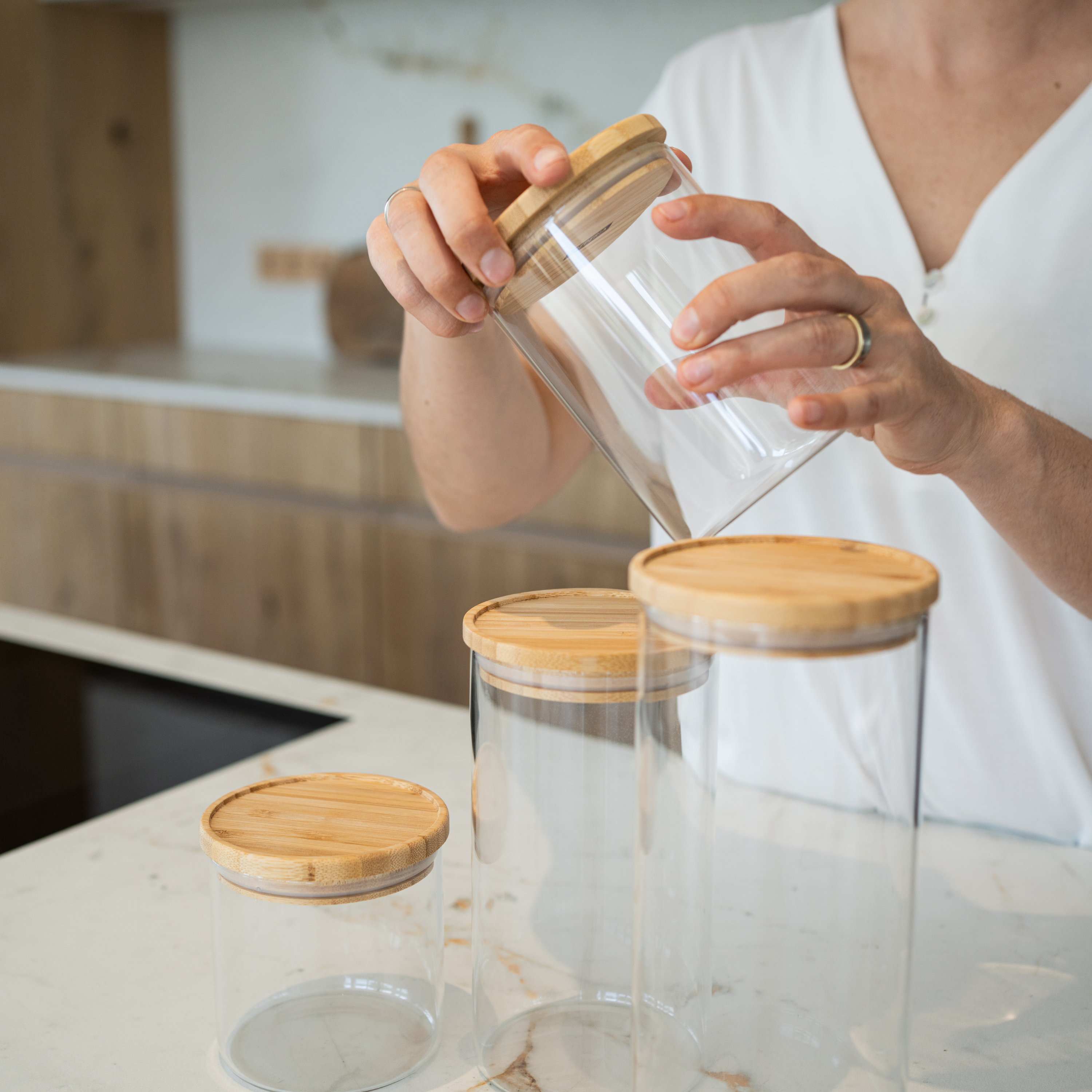Your fridge is full and somehow there are always leftovers that you just can't finish. High-quality food and food that has been painstakingly cooked ends up in the bin because it breaks down and isn't used in time.
Instead of eating delicate foods or dishes as quickly as possible to satisfy your appetite, you can use simple methods to preserve them for longer.For example, you can still eat certain vegetables or fruit even in winter and the vitamins are not lost.
Find out below what methods there are and how to go about storing food correctly.
Preserving food for a long time - these containers are suitable for this
Preserving certain foods is not difficult at all and can be done with simple glass containers. Instead of constantly using plastic tins or freezer bags, you can store your provisions in storage jars with wooden lids so that the quality is not compromised.
Using storage jars is not only a good idea in terms of sustainability. The storage jars are also food-safe and do not change the smell or taste of food.
In addition, you can easily put leftover food that you store in a glass food storage jar in the microwave or oven afterwards or take it to work with you.
As you can see, glass containers are versatile and can be very practical for everyday use when you're in a hurry.
These simple preservation methods are available
Preserving food for longer periods of time or as an emergency stockpile can be done very quickly and you can build up your stock in a targeted manner.
Here you can find out which methods are easiest if you don't have much time or have few resources at your disposal
Cooling
Most dairy or meat products need to be stored in the fridge anyway. If you want your food to stay fresh for as long as possible or want to store leftovers for the next day, you can easily do this in the fridge.

You can find out how to store food in the fridge properly here. (link to article)
Freezing
If you want to preserve food for longer or store leftovers for several days or weeks, you should freeze them
.Germs cannot multiply at low temperatures, which is why some food can be kept for up to a year.
For example, you can store soup stock, sauces, bread or meat products well and defrost them in small quantities so that you don't have to use everything at once or even throw it away.
This article explains what you should bear in mind when freezing so that glass products don't break. (link article)
Drying
Drying certain foods is an alternative to refrigerating or freezing them. Not all food is suitable for this, but you can save some food from spoiling and have it at home at all times.

Drying or dehydrating involves exposing food to heat, which removes moisture from it. As a result, the food no longer spoils so quickly and can be stored in the larder for quite a long time.
The following foods are particularly suitable for drying: fruit, vegetables, herbs, mushrooms, cereals and potatoes. Especially herbs from the Mediterranean region such as rosemary, thyme, lavender or camomile.
If you have a warm and dry room in your home, you can simply cut the food into strips and then hang them up or spread them out on a rack. Make sure that the food is not exposed to any disruptive environmental influences and that the dried food actually meets your requirements. Herbs in particular should not be exposed to sunlight, as they would lose their aroma.
Alternatively, you can dry chopped herbs on a baking tray in the oven at a low temperature, leaving the oven door slightly open.
Before you start drying or dehydrating food, you should always find out about the individual products so that they don't break during preservation.
Pickling
If you don't just want to store frozen or dried food, you can easily pickle your vegetables. You can pre-cook foods such as peppers, mushrooms or eggplants and then pickle them in oil with the right herbs or salt.
This not only gives the food a special flavor, but can also preserve it for a longer period of time.
If you want to preserve Mediterranean herbs, you can also mix them in olive oil with chilli and garlic so that you can season your food however you like.
Sugar
The term sugaring may not necessarily mean anything to you, but it is nothing more than making jams or jellies. You can simply take any fruit and berries and cook them with enough sugar to make a jam
.This means you can not only enjoy any fruit in summer, but can also eat it in winter.
Having a supply of non-perishable food at all times can be very practical if you want a snack between meals or want to make your meal extra special. Once you've stocked up, it's much easier to plan your meals and you don't have to go shopping every time.
Other foods such as honey, rusks, sugar, corn starch or rice can be stored almost forever if they are stored correctly. You can find out what you should look out for here. (link article)
If you take a sensible approach to stockpiling, you will always have supplies in the kitchen and won't have to worry so much about the shelf life of your food.





